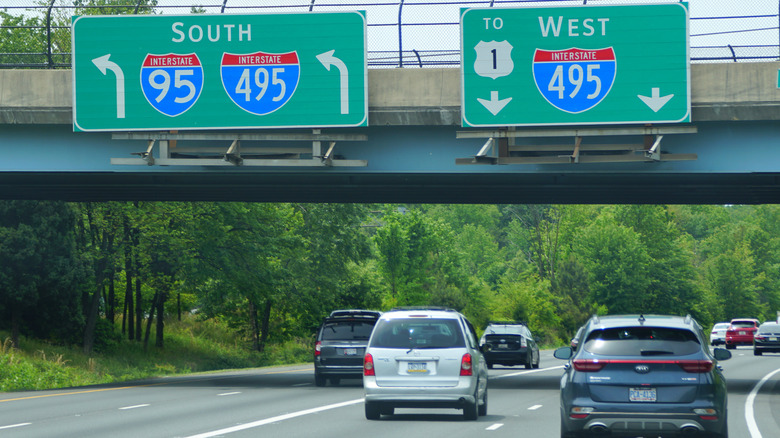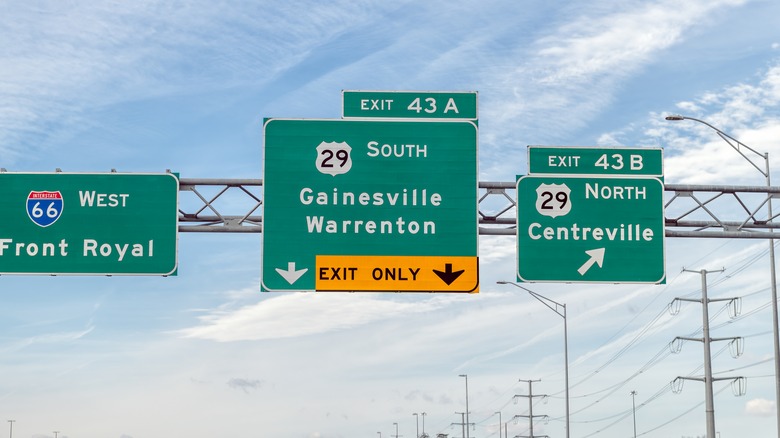An Unexpected Southern State Has The Most Expensive Toll Roads In The Country
When you think of expensive toll roads in the United States, states such as New York, New Jersey, or California probably come to mind. But recent data shows that the most costly toll roads in the country are actually in Virginia. So, if you're planning a trip there soon, make sure you are prepared.
Virginia's dominance is most apparent on its Interstate toll roads. A 2024 LendingTree analysis found that drivers in Virginia pay an average maximum of $3.27 per mile on tolled stretches of the interstate highway system, more than any of the 23 other states included in the study. For comparison, Pennsylvania, a state notorious for its tolls, ranks second at $1.73 per mile. This striking disparity is largely due to Northern Virginia's dynamically priced express lanes, such as those on Interstate 66, where rates can soar above $4.70 per mile during peak hours.
Virginia also leads the country in average toll cost per mile for bridges and tunnels, clocking in at a staggering $7.50 per mile. The impact on drivers is significant, especially given how limited Virginia's public transportation is compared to places like Washington D.C. A 2024 Joint Legislative Audit and Review Commission analysis found that 72% of surveyed EZ‑Pass users in Northern Virginia avoid toll routes altogether, per Virginia Mercury. Del. Candi Mundon King told the outlet, "If you're a Virginia resident, you're paying taxes in Virginia, you're doing everything that you're supposed to do, and then [you are] paying in perpetuity to ride down [your] own roads, it's just getting to the point with the high cost of living where it's a burden for people."
Virginia drivers face soaring tolls due to public-private partnerships
Virginia ranks among the most burdensome states for toll users, especially when considering how many of its toll facilities are operated through public-private partnerships. For instance, under the Elizabeth River Tunnels Project, the company Elizabeth River Crossings collects all toll revenue to recover its investment and operational costs. This structure prioritizes long-term profit over public affordability by using dynamic, congestion-based pricing with no maximum cap, allowing tolls to rise during peak hours to manage traffic. In practice, tolls have surged for commuters, especially those without flexible travel schedules. The project is only one of the many major infrastructure projects in Virginia funded almost entirely through tolls, not general taxes, meaning drivers alone bear the cost of construction, maintenance, and profit margins.
Drivers of large vehicles need to be especially cautious. While signs note that these vehicles pay more, they often omit exavt amounts. In 2024, a Virginia man on a trip with his family was shocked when charged $569.50 in tolls for a 45 mile round-trip drive on the I‑66 Express Lanes. And so if you're embarking on an RV road trip, be more mindful.
As of 2025, Virginia lawmakers are considering a bill that would cap toll costs at $200 per month for residents and waive fees for low-income drivers, offering relief to commuters who sometimes pay up to $65 each way. However, the proposal faces pushback due to its estimated $110.4 million annual cost and potential conflicts with private toll road contracts.

